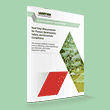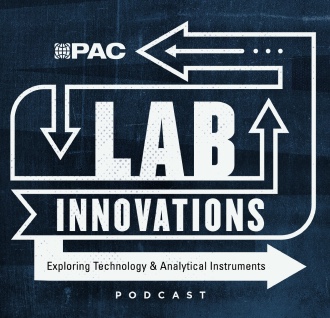Nov-2021
Leverage digitalisation for sustainable operations
By introducing sustainable policies and processes with the help of digitalisation, operators can position themselves to experience smarter long-term benefits.
Dr Pratap Nair
Ingenero
Viewed : 2350
Article Summary
Sustainability can be seen as a measure of the capability of the process(es) by which something is kept at a certain level. Sustainability is a broad topic and has been described as being made up of three pillars: the economy, society and the environment. These pillars are also casually referred to as the 3Ps: people, planet and profit.
Over the years, sustainability has become a necessity for enterprise growth. With changing market sentiments, sustainability is quickly becoming accepted as a key parameter along with traditional metrics.
Although sustainable practices are rapidly finding ground in various domains, this article largely focuses on sustainable practices within the oil, gas and petrochemical sector and how these practices can be improved through the application of digital solutions.
Over recent years, major focus and concern have being directed towards the depletion of non-renewable natural resources on account of overexploitation, energy use and emissions in operations, linear consumption of products, direction of investments, and lifestyle choices. As long as a solution is found that causes little to no harm to the natural world, while allowing for continued quality of life in today’s societal standards, this balance can be believed to be sustainable. Sustainability has become a substantial part of life as it influences purchasing behaviours, technological developments and business, and general institutional changes. Extensive sustainability programmes to improve efficiency/energy have helped companies optimise resource consumption and accelerate growth through innovative products and services, all whilst driving environmental competences and brand value. Today, sustainability is a key differentiator and a strategic business imperative that helps drive performance and top-line growth.
Sustainable operation through efficiency initiatives, energy initiatives, water initiatives, and physical waste initiatives can lead to immense savings and can be achieved through the three approaches listed in Table 1.
Digital leverage
Sustainability and digital transformation are more than just industry buzzwords — they can be effectively implemented with cogent guidelines and seamlessly integrated into business operations achieving both goals together: sustainability and digital transformation.
Effective use of digital solutions employs digital technologies to convert data to augmented intelligence (AI), which enables closer to real-time access to decision quality information. This greatly facilitates achievement of improvements in existing units for greater sustainability, whilst not losing sight of traditional business values. AI is a hybrid approach of using the best of available tools and technology to enhance human intelligence and allow creation of actionable intelligence. Digital twin and predictive models from advanced analytics as part of digitalisation enable better identification of energy savings opportunities and productivity improvements, both of which impact carbon footprint and hence sustainability, and allow more innovative design changes.
AI improves operational performance by providing:
- Faster identification - More agile identification of process and/or equipment anomalies, leaks, etc.
- Faster action - Lower losses of product and energy
- Reduced gap between plan and actual production from faster identification and response cycles
- Better and closer to real-time ESG data reporting against benchmarks
Ingenero’s support to sustainable operation
Ingenero’s Sustainability Program, I-SSPDE, integrates edge computing with advanced analytics utilising the full potential of Industrial Internet of Things (IIoT). By combining latest smart technologies and tools, I-SSPDE acts as a force multiplier and allows operators in the oil and gas sector to advance their energy management, safety modelling and automation processes.
Ingenero’s Sustainability Program, I-SSPDE, integrates edge computing with advanced analytics utilising the full potential of Industrial Internet of Things (IIoT). By combining latest smart technologies and tools, I-SSPDE acts as a force multiplier and allows operators in the oil and gas sector to advance their energy management, safety modelling and automation processes.
With this program, KPIs are tracked to provide both an intrinsic and extrinsic view of the process/equipment. This is encapsulated in Ingenero’s very own dashboard, built by bringing together three separate industry standard views into one screen to provide:
- An Operational Outlook — interprets large amounts of information, provides continuous real-time data to operators in a single, clear visual.
- An Analytical Outlook — allows for further investigation into the data received through KPIs, enables users to investigate any anomalies in the data and uncover its root cause.
- A Strategic Outlook — allows users to receive simulated solutions for any problems that the system identifies, thus highlighting any opportunity to optimise
Conclusion
In conclusion, sustainability and profitability cannot be considered as mutually exclusive theories. Also, the industry is gradually understanding that this does not always translate to smaller profit margins. The industry might even have to go through some form of growing pains in the form of increasingly regulated and strict frameworks in the coming years for the public good. But fortunately, by initiating the process to construct an integrated and digitised infrastructure, enterprises can rise up to the expectations of achieving environmental and operational sustainability while remaining profitable. By introducing sustainable policies and processes with the help of digitalisation strategies, greater proficiencies can be seized and themselves to experience smarter long-term benefits.
Add your rating:
Current Rating: 4

















